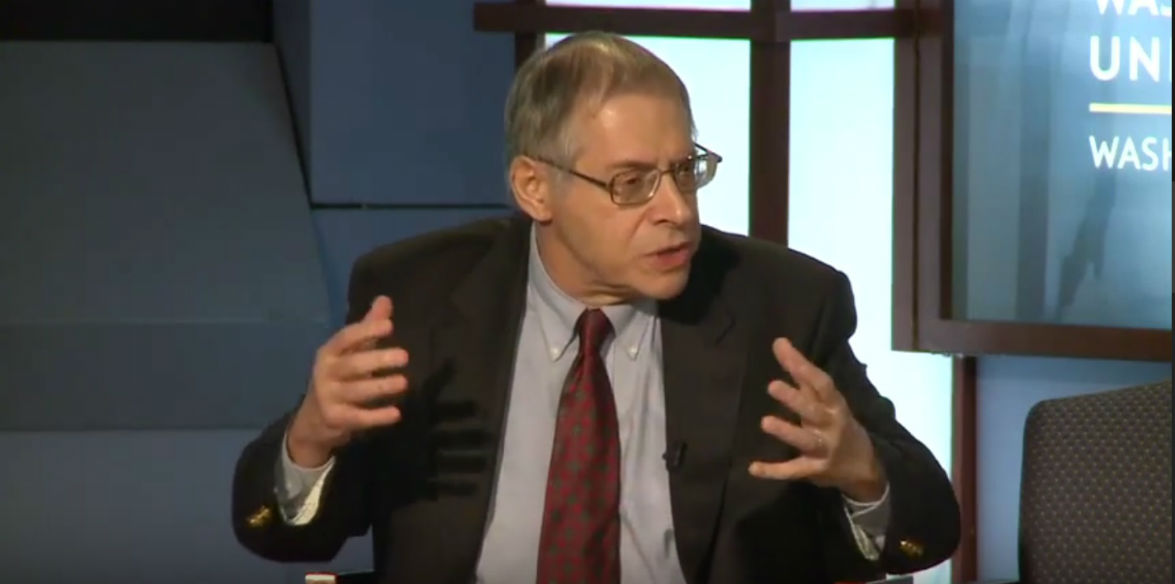Keeping in mind that the Federal Government cannot involuntarily “run out of money” because of its constitutional money-creating capacity, then the answer to the question in the title is “of course it can.” But, whether or not it does is, in the end, up to Congress choosing to appropriate the spending required.
Right now, given our current fiat currency system, and how Federal spending occurs in general, entitlement spending for Medicare and Social Security occurs through marking down the “trust fund” security accounts, marking up the Treasury spending accounts and then marking down those same accounts when entitlement payouts to the private sector occur. Congress, according to the SS legislation, doesn’t allow the Treasury to spend on entitlements when the spending cannot be covered by balances in the “trust funds” that can be marked down.
However, what if Congress appropriates full benefit payouts for Social Security and Medicare when the “trust funds” fall to zero? Then those appropriations will, in effect, constitute repeal of the prohibition against payouts without trust fund balances to draw against, with new mandated spending. It would then be up to the Treasury to generate the credits in its spending accounts to make those payments.
It can use a variety of methods to do that including tax revenues, revenues from debt instruments, revenues from seigniorage, revenues from perpetual bond sales, and other methods reviewed elsewhere. But make those payments it must, since they are mandated by the Congressional appropriations.
A Faux Deficit/Debt/Entitlement Crisis
An awful lot of money and political communications (lobbying) effort is being spent on both a largely faux national deficit/debt crisis, and a largely faux entitlement crisis. Both of these are often represented by media pundits, reporters, and politicians as projected financial problems, but, in actuality, are present and projected political problems, which need not persist or occur.
In fact, the so-called “deficit problem” is not that our deficits are too large, but that they are too small. We know that because we still are not at true full employment, and also because our trade deficits are roughly the same size as our fiscal deficits.
That means we are getting almost no net injection of new financial assets into the private economy to support growth. If we keep that up and do not blow a further financial bubble, then we will continue to have a stagnating economy with, very likely, growing inequality.
Both of these “crises” can be ended by Congress and the Executive Branch adopting alternative means of funding Congressional Appropriations, other than tax revenues and revenues from issuing and selling conventional interest-bearing debt instruments. So, both “crises” are political and not financial or economic.
Both await nothing but the political will to implement a solution that will end them without austerity and without economic pain. All we need is the courage of our convictions, and a firm rejection of those voices including Peter G. Peterson Foundation (PGPF)/Committee for a Responsible Federal Budget (CRFB), Paul Ryan, Vice President-Elect Mike Pence, and a number of centrist and supposedly progressive Democrats, insisting that only through tax increases and spending cuts can we find fiscal salvation.
The austerity advocates have been singing this song for decades now. It has come very near to irreparably ruining the Democratic Party. Let us firmly reject it now, and sing a new song of deficit spending, greater equality, and real progress in repairing our economy and our society.
